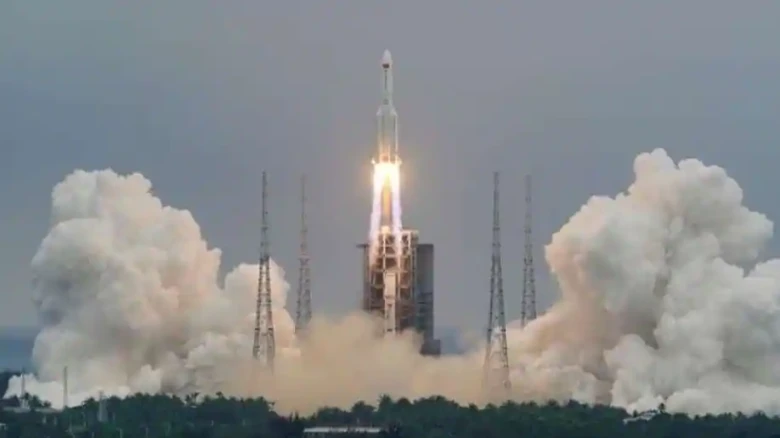The US Space Command said on Twitter on Saturday that it is still unknown what course the rocket debris may take and directed inquiries to the Chinese authorities.
Digital Desk: Debris from a large Chinese rocket came back to Earth on Saturday over the Indian Ocean, a report by the news agency Reuters said. At around 12:45 PM EDT on Saturday, the US Space Command reported that the Long March 5B (CZ-5B) rocket re-entered over the Indian Ocean (16:45 GMT).
It tweeted, "We refer you to the PRC for further details on the reentry’s technical aspects, such as potential debris dispersal and impact location."
According to NASA, Beijing has not provided the "precise trajectory information" required to determine the potential locations of falling debris.
The US Space Command said on Twitter on Saturday that it is still unknown what course the rocket debris may take and directed inquiries to the Chinese authorities.
According to a brief statement that was questioned by a US official, China's spaceflight agency claimed that the 23 metric tonne (25.4 tonnes) of Long March 5B's wreckage crashed to Earth over water in the southwest Philippines. The "great majority" of the debris burned up upon reentry.
According to the New York Times, which cited updates on the social networking site Weibo, the Chinese Manned Space Agency asserted that the majority of the debris had burned up on re-entry over the Sulu Sea, between the island of Borneo and the Philippines.
NASA Administrator Bill Nelson was quoted by Reuters as saying that "all spacefaring nations should follow recognised best practices and do their bit to provide this type of information in advance to allow realistic projections of potential debris impact risk." To secure the safety of humans on Earth and the responsible use of space, is essential.
The Long March 5B, China's most potent rocket, launched on July 24 to carry a laboratory module to the new Chinese space station being built in orbit. This was the rocket's third trip since its initial launch in 2020. In 2020, pieces of a different Chinese Long March 5B fell on the Ivory Coast, destroying a number of structures there, although no injuries were reported.
The Chinese Embassy in Washington declined to react right away. China stated earlier this week that it would watch the debris attentively but claimed that there was no danger to anyone on the ground.








Leave A Comment